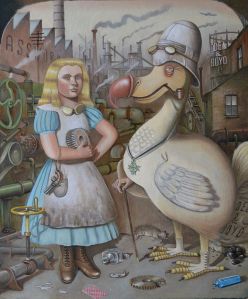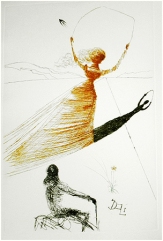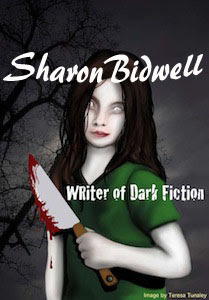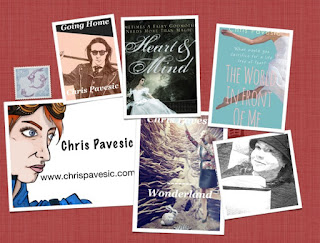The second of my re-posts of book reads for the last couple
of years, a time when I usually look back and reflect
on some of the books I read during the last 12 months. 2014 I consider a
poor year for reading, being only approximately 30 books in total, a
drop from my reads of 2013, which numbered 45. I plan/sincerely hoped to
do better in 2015 (you’ll see in my next post I did worse), although
the reason for my low read count was owing to circumstances outside of
my control. We’ve had a lot of disruptions, not least of which finally
reaching the decision we’ve been toying with and deciding to move.
So, a handful of the books I read are:
Under the Dome, Stephen King (started in 2013)
Birmingham Noir, Joel Lane and Steven Bishop
A Feast for Crows, George R.R.Martin
A Discovery of Witches, Deborah Harkness
The Ocean at the End of the Lane, Neil Gaiman
Doctor Who Companions, Andy Frankham Allen
Lover Revealed, J.R.Ward
Deadlocked, Charlaine Harris
The Curious Case of the Clockwork Man, Mark Hodder
Dead Ever After, Charlaine Harris
Shifting Hearts, Dominique Eastwood
Flesh and Blood, Jonathan Maberry
Fire and Ash, Jonathan Maberry
A Peach of a Murder, Livia J Washburn
Teacher, Teacher, Jack Sheffield
The Bride Wore Black Leather, Simon R Green
The Exotic Marigold Hotel, Deborah Moggach
Murder and Marinara, Rosie Genova
The Dance of Dragons, Part 1, George R.R.Martin
Thud, Terry Pratchett
Changes, Jim Butcher
Horns, Joe Hill
The Night Before Christmas, Scarlett Bailey
I also read and caught up with a number of books in the Space 1889
series, and if I were to list them all in order of preference they would
be toward the top of best-reads of 2014. As you can see, many of the
other titles were of lighter content this year–a sure sign of stress and
a lack of concentration on my part.
Still, I usually choose my read of the year…only this year that’s extremely difficult. I enjoyed
Under the Dome, and was exceedingly disappointed in the television adaptation. My advice would be stick with the book.
I continue to like the works of George R.R.Martin because I’ve always had a soft spot for fantasy and one thing
Game of Thrones
does is present a realistic world completely with fallible characters
and the messiness of war. It doesn’t just present high fantasy, swords
& sorcery, and doesn’t shy away from the realities of subjects like
torture.
A Discovery of Witches by Deborah Harkness was a pleasant
find, but I didn’t realise it wasn’t entirely a standalone read and I’m
not sure I can commit to another series just now so may not pick up the
next book.
The Ocean at the End of the Lane is typical Neil Gaiman and I may like his work to various degrees, but I’ve never come across a story of his I didn’t like.
Doctor Who Companions by Andy Frankham Allen was another
surprising read. I’m not what one could call a ‘dedicated’ fan of Who in
the sense I would want to know all there is to know, but this book is
written with a warm, comfortable tone that made the information
interesting, and I discovered many things I didn’t know or had
forgotten. It belongs in every Whovians home.
Charlaine Harris’s last books in the Sookie Stackhouse universe came
under some controversy, and I have to admit I had learned who Sookie
finished up with before I read the last book. I stand by the author’s
right to decide the outcome for her characters, and at one point in the
series, I had seen this might be on the cards; however, I didn’t ‘feel’
it at the end. There was a time when I did earlier in the series, and
therefore I had already made the possible link in my head and heart, but
when it came down to it I personally found it to be a letdown because
the emotions weren’t there for me. Still, it’s been a good series, with
some unforgettable characters, and no author deserves the kind of abuse
that Ms Harris faced over the outcome of these books. I’m at least happy
the series reached a conclusion.
I’ve read Jonathan’s Maberry’s adult and YA books, and not only do
they entertain, but it’s interesting for me as a writer to see how
another author handles the degrees of violence and horror for different
age groups. If you like zombies, check out his work.
Horns was a surprising read. I was intrigued when I saw a
trailer for the film, and not having tried Joe Hill’s work before
thought I’d take a look. I had read some disparaging remarks quoting the
book as not being very good, but I enjoyed the overlapping layers
contained in the story, the way the facts were revealed, and while the
subject of the book–a man who grows horns–may strike many as bizarre and
fantastical, it served the purpose of the story well. I did feel the
writing could have been tweaked in a number of places, but that’s the
thing with books–it’s all personal opinion.
One book that could undeniably do with an edit was unfortunately the
one I ended the year on. I don’t usually read what many would describe
as chick-lit, but while Scarlett Bailey’s characters aren’t the most
likeable in
The Night Before Christmas, it does make them
somewhat real. Alas, the book has so many typos and missing words it
made the task of connecting with them even more difficult. I picked it
up as a light read as we were on the move all Christmas and new year
week, but feel this is one book that will end up going to the charity
shop.
So from my least favourite book of the year to my favourite
overall…the trouble is this year I don’t have one. Under the Dome, The
Ocean at the End of the Lane, The Curious Case of the Clockwork Man, The
Exotic Marigold Hotel, Thud, Changes, Horns…these are all worth a look.
If absolutely pushed…I guess I’d have to choose
Thud. Nothing beats the genius of Terry Pratchett.







